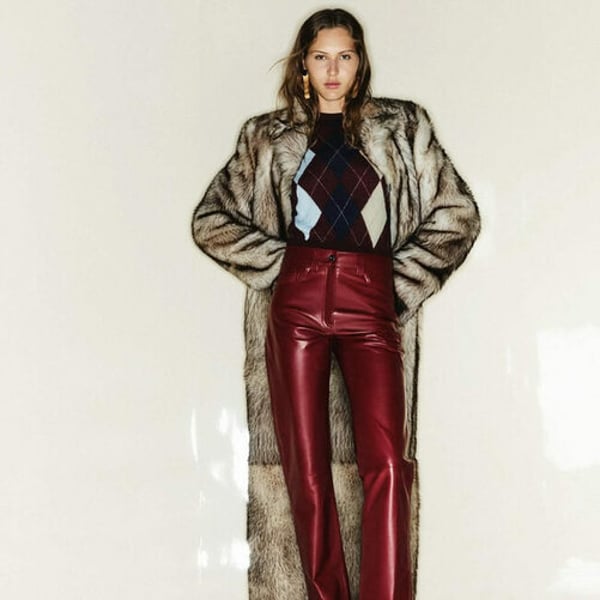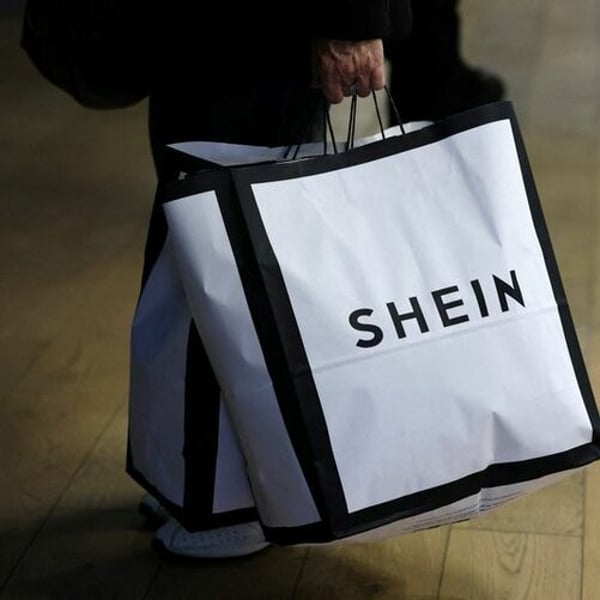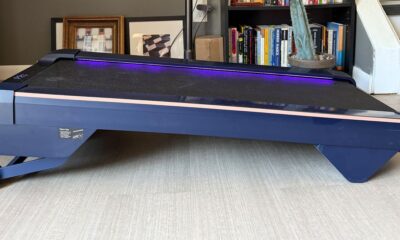Fashion
DyStar releases 2024 – 2025 Integrated Sustainability Report

DyStar, a leading specialty chemical company with a heritage of more than a century in product development and innovation, today announced the release of its 2024 – 2025 Annual Integrated Sustainability Report. The report reaffirms DyStar’s commitment to sustainability and innovation, highlighting key progress in environmental responsibility and detailing the impact of optimizing its global manufacturing footprint.
DyStar has released its 2024–2025 Integrated Sustainability Report, highlighting a 67 per cent cut in Scope 1 and 2 emissions, 58 per cent lower wastewater intensity, and a 3 per cent drop in energy use per ton.
Social gains include 31 per cent women in management and zero workplace fatalities.
With $180k in community support and strong governance, DyStar advances toward its 2025 targets.
Despite the challenges posed by the optimisation of manufacturing facilities and increased production volumes driven by rising demand, the report outlines key milestones achieved over the past year compared to the 2011 baseline.
Environmental Highlights
- GHG Intensity: DyStar maintained strong control over greenhouse gas intensity despite changes in manufacturing layout. Scope 1 and 2 emissions totalled 42.96 thousand tCO2e — a 67% reduction in absolute emissions.
- Wastewater Management in Production: Site-level initiatives reduced wastewater production intensity to 7.64 m³ per ton of production, marking a 58% decrease.
- Energy Consumption: Energy intensity dropped to 9.67 GJ per ton of production—a 3% reduction—driven by increased use of renewable energy and successful implementation of energy-saving initiatives.
- Sustainable Procurement: Zero cases of non-compliance were reported regarding product and service information, including labelling. Additionally, 45% of packaging materials were recycled, lowering intensity levels.
Social Impact
- Diversity: Women hold 31% of management roles.
- Workplace Health and Safety: Zero workplace fatalities and work-related ill health reported.
- Community Engagement: DyStar contributed USD 180,000 to community initiatives.
Governance Achievements
- Ethic and Compliance: Zero cases reported on corruption, anti-competitive behaviour, or violations of anti-trust and monopoly laws.
- Data Privacy: Zero cases reported on customer data loss or breaches of privacy, and no complaints were received from external parties or regulatory bodies.
“Our latest report reflects DyStar Group’s steadfast commitment to advancing environmental stewardship, social responsibility, and sound governance,” said Mr. Xu Yalin, Managing Director and President of DyStar Group. “As a responsible leader in the chemical and textile supply chain, DyStar firmly believes in bridging responsibility with innovation – delivering high-performance products and solutions that meet the evolving demands of our industry. We remain focused on shaping a sustainable future through meaningful collaboration and active stakeholder engagement.”
The performance report further reinforces DyStar’s continued efforts to accelerate climate action while navigating the challenges of climate impact across its global operations. In pursuit of its 2025 targets, DyStar continues to adapt to an increasingly complex and volatile regulatory landscape. The organisation remains committed to sustainability—driving strategic business decisions and fostering impactful dialogue with stakeholders. As DyStar prepares to finalize our 2030 targets, it will continue to prioritize production efficiency and the optimization of our manufacturing footprint (MFO).
Note: The headline, insights, and image of this press release may have been refined by the Fibre2Fashion staff; the rest of the content remains unchanged.
Fibre2Fashion News Desk (HU)
Fashion
China’s domestic cotton prices rise further as mill demand strengthens

China’s domestic cotton prices strengthened on December 1, as robust mill purchasing lifted all major grades.
The CC Index (3128B) rose to 14,936 yuan per ton, with higher-quality lots leading gains.
Regional markets, especially East China, recorded the strongest quotations, while Xinjiang remained competitively priced.
Improved mill utilisation and quality-driven buying signal firmer sentiment.
Source link
Fashion
Khaite sets sights on Japan with new joint venture

Published
December 2, 2025
Khaite is expanding into Japan through a newly formed joint venture with Yagi Tsusho Ltd., establishing Khaite Japan Corp. and marking the start of a long-term strategic partnership for the New York label.
Under the agreement, Yagi Tsusho will introduce Khaite to the Japanese market beginning with the fall 2025 season, according to WWD.
The Osaka- and Tokyo-born company has grown into a global operation with offices across the U.S., Europe, and Asia, and holds a joint venture with Moncler, while also owning British outerwear brand Mackintosh. Leveraging its local expertise and retail relationships, Yagi Tsusho will oversee Khaite’s expansion across key brick-and-mortar and digital channels in Japan.
Founded in 2016 by creative director Catherine Holstein, Khaite has emerged as a favourite among luxury consumers and industry insiders, earning Holstein back-to-back CFDA American Womenswear Designer of the Year awards in 2022 and 2023.
The brand also received an investment in 2023 from New York–based private equity firm Stripes. Earlier this year, Khaite opened its fifth boutique in Los Angeles, in Melrose Place.
Copyright © 2025 FashionNetwork.com All rights reserved.
Fashion
US Republican senator calls for DOJ and Homeland Security to investigate Shein, Temu for counterfeiting

By
Reuters
Published
December 1, 2025
U.S. Republican Senator Tom Cotton of Arkansas sent a letter to Attorney General Pam Bondi on Monday calling for the U.S. departments of Justice and Homeland Security to investigate online retailers Shein and Temu, which ship most of their merchandise from China, for wide-scale intellectual property theft and counterfeiting.
The letter, which was seen by Reuters, adds to the increased scrutiny of Shein and Temu, which both sell $20 shirts and $10 accessories, following the end of a U.S. trade exemption that helped both companies gain popularity in the region. Shein is privately held and Temu is owned by PDD Holdings.
Shein and Temu did not immediately comment on Cotton’s letter.
The European Commission said in July that Temu was breaking EU rules by not doing enough to prevent the sale of counterfeit goods on its platform. The company said at the time that it would fully cooperate with the Commission.
Shein has previously said that it requires its suppliers to certify that their products do not infringe on a brand’s intellectual property and that they are not counterfeit. The company has a team that ensures its sellers comply with the policy and takes swift action if they are not in compliance, a spokesperson previously said.
The ending of the, which allowed packages shipped directly to shoppers valued at under $800 to enter the U.S. duty-free, has “forced Shein and Temu to change their business model,” Cotton said in the letter.
“These companies now stock massive inventories in U.S. warehouses and distribution centers. Their goods are no longer slipping through ports,” Cotton said. “They are sitting on American soil under U.S. jurisdiction.”
Texas Attorney General Ken Paxton said on Monday he is investigating whether Shein violated state law related to unethical labor practices and the sale of unsafe consumer products. France last week asked a Paris judge to suspend Shein in the country for three months over sales of childlike sex dolls and banned weapons.
© Thomson Reuters 2025 All rights reserved.
-

 Sports1 week ago
Sports1 week agoWATCH: Ronaldo scores spectacular bicycle kick
-

 Entertainment1 week ago
Entertainment1 week agoWelcome to Derry’ episode 5 delivers shocking twist
-

 Politics1 week ago
Politics1 week agoWashington and Kyiv Stress Any Peace Deal Must Fully Respect Ukraine’s Sovereignty
-

 Business1 week ago
Business1 week agoKey economic data and trends that will shape Rachel Reeves’ Budget
-

 Politics1 week ago
Politics1 week ago53,000 Sikhs vote in Ottawa Khalistan Referendum amid Carney-Modi trade talks scrutiny
-

 Tech6 days ago
Tech6 days agoWake Up—the Best Black Friday Mattress Sales Are Here
-

 Fashion1 week ago
Fashion1 week agoCanada’s Lululemon unveils team Canada kit for Milano Cortina 2026
-

 Tech1 day ago
Tech1 day agoGet Your Steps In From Your Home Office With This Walking Pad—On Sale This Week

















